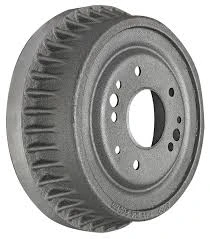
-
 Afrikaans
Afrikaans -
 Albanian
Albanian -
 Amharic
Amharic -
 Arabic
Arabic -
 Armenian
Armenian -
 Azerbaijani
Azerbaijani -
 Basque
Basque -
 Belarusian
Belarusian -
 Bengali
Bengali -
 Bosnian
Bosnian -
 Bulgarian
Bulgarian -
 Catalan
Catalan -
 Cebuano
Cebuano -
 Corsican
Corsican -
 Croatian
Croatian -
 Czech
Czech -
 Danish
Danish -
 Dutch
Dutch -
 English
English -
 Esperanto
Esperanto -
 Estonian
Estonian -
 Finnish
Finnish -
 French
French -
 Frisian
Frisian -
 Galician
Galician -
 Georgian
Georgian -
 German
German -
 Greek
Greek -
 Gujarati
Gujarati -
 Haitian Creole
Haitian Creole -
 hausa
hausa -
 hawaiian
hawaiian -
 Hebrew
Hebrew -
 Hindi
Hindi -
 Miao
Miao -
 Hungarian
Hungarian -
 Icelandic
Icelandic -
 igbo
igbo -
 Indonesian
Indonesian -
 irish
irish -
 Italian
Italian -
 Japanese
Japanese -
 Javanese
Javanese -
 Kannada
Kannada -
 kazakh
kazakh -
 Khmer
Khmer -
 Rwandese
Rwandese -
 Korean
Korean -
 Kurdish
Kurdish -
 Kyrgyz
Kyrgyz -
 Lao
Lao -
 Latin
Latin -
 Latvian
Latvian -
 Lithuanian
Lithuanian -
 Luxembourgish
Luxembourgish -
 Macedonian
Macedonian -
 Malgashi
Malgashi -
 Malay
Malay -
 Malayalam
Malayalam -
 Maltese
Maltese -
 Maori
Maori -
 Marathi
Marathi -
 Mongolian
Mongolian -
 Myanmar
Myanmar -
 Nepali
Nepali -
 Norwegian
Norwegian -
 Norwegian
Norwegian -
 Occitan
Occitan -
 Pashto
Pashto -
 Persian
Persian -
 Polish
Polish -
 Portuguese
Portuguese -
 Punjabi
Punjabi -
 Romanian
Romanian -
 Russian
Russian -
 Samoan
Samoan -
 Scottish Gaelic
Scottish Gaelic -
 Serbian
Serbian -
 Sesotho
Sesotho -
 Shona
Shona -
 Sindhi
Sindhi -
 Sinhala
Sinhala -
 Slovak
Slovak -
 Slovenian
Slovenian -
 Somali
Somali -
 Spanish
Spanish -
 Sundanese
Sundanese -
 Swahili
Swahili -
 Swedish
Swedish -
 Tagalog
Tagalog -
 Tajik
Tajik -
 Tamil
Tamil -
 Tatar
Tatar -
 Telugu
Telugu -
 Thai
Thai -
 Turkish
Turkish -
 Turkmen
Turkmen -
 Ukrainian
Ukrainian -
 Urdu
Urdu -
 Uighur
Uighur -
 Uzbek
Uzbek -
 Vietnamese
Vietnamese -
 Welsh
Welsh -
 Bantu
Bantu -
 Yiddish
Yiddish -
 Yoruba
Yoruba -
 Zulu
Zulu
front drum brakes locking up
Front Drum Brakes Locking Up Causes, Effects, and Solutions
Front drum brakes play a crucial role in a vehicle’s braking system, providing the necessary stopping power to ensure both safety and performance. However, there are instances where these brakes may lock up during operation, which can lead to severe consequences for driver control and safety. Understanding the causes, effects, and solutions to this issue is essential for all vehicle owners and mechanics alike.
When we talk about front drum brakes locking up, we refer to a situation where the braking mechanism becomes stuck, preventing the wheels from rotating freely. This can happen for various reasons, commonly due to issues within the braking system itself. One significant cause is the wear and tear of brake components, such as the brake shoes and drum. Over time, these parts can deteriorate, leading to friction that causes the brakes to seize.
Another culprit can be the brake fluid. If the brake fluid is contaminated or has absorbed moisture, it can lead to corrosion within the brake assembly. This contamination can result in the brake cylinder seizing up, consequently locking the drum. Additionally, air trapped in the brake lines can create erratic brake pressure, further contributing to potential locking.
Temperature also plays a significant role in brake performance. Excessive heat generated during braking can cause the drum to expand, leading to increased friction. If the brakes are not adequately ventilated, the heat can build up to a point where the drums may lock up, leaving the driver with little control over their vehicle.
front drum brakes locking up

The effects of front drum brakes locking up can be incredibly dangerous. The most immediate impact is a loss of steering control, as locked wheels can lead to skidding. This situation becomes particularly perilous in adverse weather conditions, such as rain or snow, where traction is already compromised. In severe cases, locked brakes can cause accidents, endangering not only the driver but also other road users.
To prevent front drum brakes from locking up, regular maintenance is imperative. Vehicle owners should have their braking systems inspected periodically, checking for signs of wear or damage in brake components. This includes inspecting the brake shoes, drums, and cylinders for any signs of corrosion or irregular wear. It is also essential to ensure that the brake fluid is clean and free of contaminants, as well as checking for any leakage in the brake lines.
Moreover, drivers should be educated about their braking systems and urged to adopt safe driving habits. Avoiding sudden braking, especially during high-speed driving, can help reduce the strain on the braking system. In addition, ensuring that brakes are not applied while turning can prevent uneven wear and overheating.
In some cases, replacing front drum brakes with disc brakes can provide a more reliable solution. Disc brakes typically have better heat dissipation and less likelihood of locking up compared to their drum counterparts. However, this option may involve additional costs, and it’s essential to weigh the benefits against the investment.
In conclusion, front drum brakes locking up can pose serious risks to vehicle safety. Understanding the underlying causes allows drivers to take preventive measures, ensuring that their braking systems remain effective and reliable. Regular maintenance, proper driving techniques, and timely replacements of worn components can significantly reduce the chances of this potentially dangerous situation. Ultimately, being proactive about brake health is crucial for the safety of everyone on the road.
-
What Are Drum BrakesNewsJul.07,2025
-
Understanding Brake Drum MaterialNewsJul.07,2025
-
Semi-Trailer Brake Drum: A Key Component for Extreme Loads and Long-Distance TransportNewsJul.07,2025
-
Drum Brake Pads for SaleNewsJul.07,2025
-
Brake Drums for SaleNewsJul.07,2025
-
Brake Drum ManufacturerNewsJul.07,2025
-
Aluminum Brake Drums: The Future of High-Performance CarsNewsJul.07,2025
